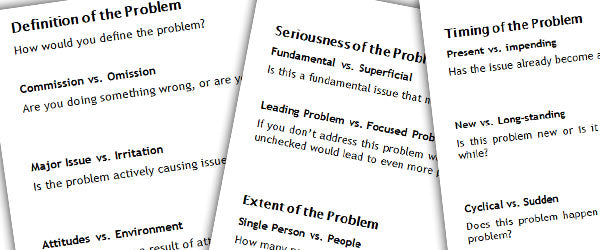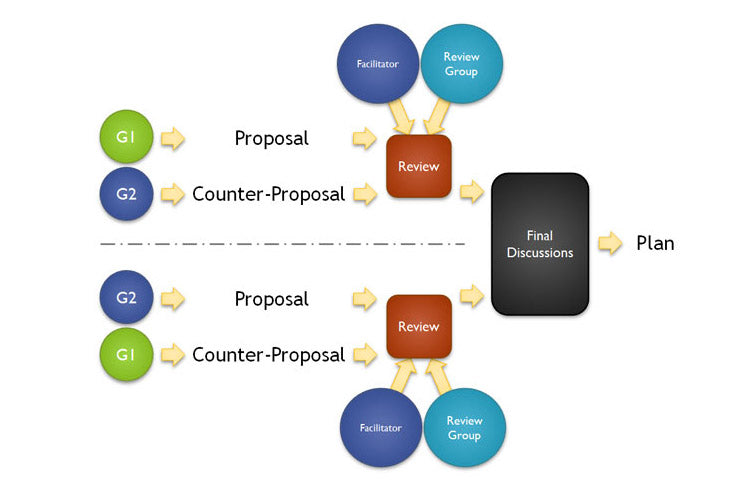Purpose
Sometimes we take things for granted. We assume certain conditions are true and remain true until it is too late. This happens often in industries that evolve very quickly or markets that change rapidly due to social or political instabilities.
As an example, the mobile phone industry evolves quickly. The earlier leaders in the industry such as Nokia took their position for granted and focused primarily on adding Mega Pixels and rings tones generation after generation until a new competitor, namely Apple, entered the market with a much more superior product. The customers responded by dishing their old phones and getting the new feature-rich smart phones. Nokia lost the market and their shares crashed as much as 90% within several short years. The moral of the story is simple. If you assume and don’t question your assumptions, before long you are bound to make critical mistakes that could endanger your project, your market or even the very existence of your organisation.
In this exercise, delegates learn to systematically challenge assumptions. This exercise is ideal for a group of people that work for the same organisation.
Objective
Identify a series of assumptions and then challenge them.
What You Need
- Flipcharts
Setup
- Ask the delegates to consider a particular subject or domain for the purpose of this exercise. Ideally it is best if this is related to current concerns, market or trends at work.
- Ask the delegates to suggest a list of assumptions. Ask them to think of all kinds of assumptions, especially those that are obvious. You can use a variety of brainstorming techniques at this point to generate this list and record them on the flipchart.
- Once recorded, ask the group to challenge each assumption one by one. They should consider:
- Why are we assuming this?
- Under what conditions is this assumption true?
- While challenging assumptions, they may make new assumptions. Add these to the list for the next iteration.
- Once the original list is covered, go through the list again to address new assumptions that were added and continue with the same process until all assumptions are addressed.
- The key to the success of this exercise is to include all assumptions including those that are sometimes taken as facts. Hence, it is critical to think out of the box and question everything.
- Collect all assumption busting ideas for future reference and identifying necessary actions.
- Follow with a quick discussion on the effectiveness of the technique.
Timing
Explaining the Exercise: 2 minutes
Activity: 20 minutes
Group Feedback: 5 minutes
Discussion
Did you manage to find assumptions that may not be hold true in the future? Were you happy with the list of assumptions or do you still think that there are more assumptions that you have not considered yet? Was challenging assumptions easy? Would you change anything in this process to adapt it to your specific work needs?
Soft Skills Training Materials
Get downloadable training materials
Online Train the Trainer Course:
Core Skills
Learn How to Become the Best Trainer in Your Field
All Tags
Training Resources for You

Course Design Strategy
Available as paperback and ebook

Free Training Resources
Download a free comprehensive training package including training guidelines, soft skills training activities, assessment forms and useful training resources that you can use to enhance your courses.

Our Comprehensive Guide to Body Language

Train the Trainer Resources
Get Insights - Read Guides and Books - Attend Courses
Training Materials
Get downloadable training materials on: Management Training, Personal Development, Interpersonal Development, Human Resources, and Sales & Marketing














Leave a comment
All comments are moderated before being published.
This site is protected by reCAPTCHA and the Google Privacy Policy and Terms of Service apply.